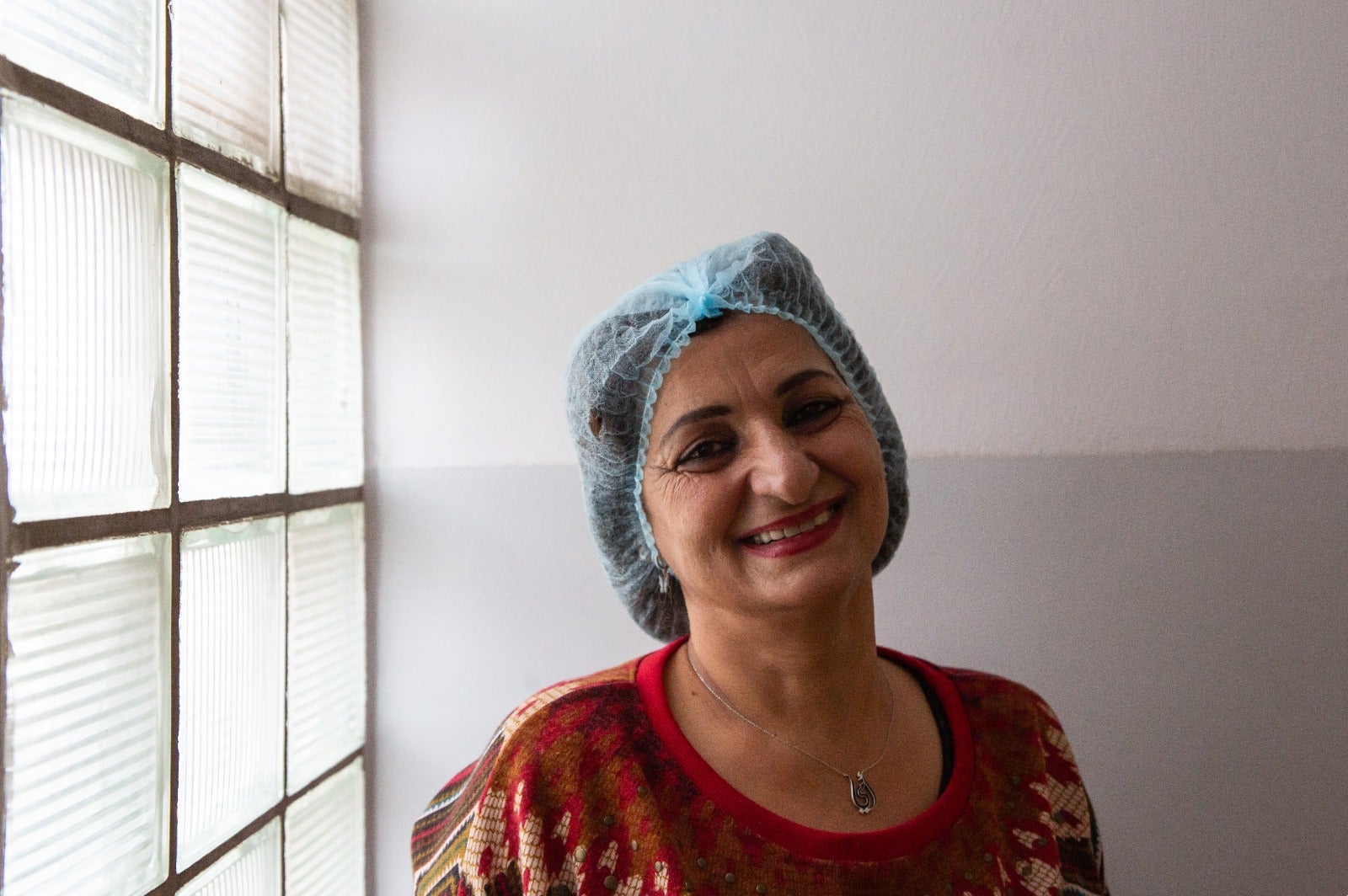From Where I Stand: “I advocate passionately for destigmatizing period poverty”
Date:
Montaha Jaber, 55, has been living in the Bekaa region most of her life. Determined to gain independence and make ends meet, she took a job at UN Women and Acted’s new menstrual hygiene production facility, which was starting a new line producing quality and affordable women’s sanitary products. Trained as a manufacturer, Montaha reflects on her work and the mission of challenging social taboos around women’s reproductive health.

“At the age of 17, my life took a significant turn when I married a man who, over time, suffered a stroke. This condition left him speech-impaired and mentally incapacitated, leaving me as the primary caregiver for him and our four children. The challenges intensified when one of our children was diagnosed with a disability, amplifying the weight of responsibility on my shoulders.
To sustain my family, I worked as a cleaner at a police station, grappling with the harsh reality of a meager income. The economic strains, coupled with the pressing medical needs of my husband and disabled son, compelled me to take on the roles of both mother and father in the absence of sufficient employment opportunities in Bekaa.
I learned about this project targeting period poverty from a neighbour of mine. Recognizing the financial strain on my family, I eagerly joined this initiative, finding renewed purpose in contributing to the production of sanitary pads.
Participating in the project not only alleviated my financial burdens but also empowered me through meaningful employment. As a manufacturing woman, I actively contribute to packaging pads, maintaining inventory and fostering a supportive community among my fellow workers.
My newfound empowerment extends beyond personal development. I advocate passionately for destigmatizing period poverty and stress the critical need for awareness and education. Breaking the silence surrounding this issue is integral to promoting hygiene, cleanliness and dignity for women and girls.”
Montaha is among the 300 women in the manufacturing unit overseen by the Acted NGO in Bekaa, Tripoli, Beirut, and Saida, supported by UN Women and funded by the Government of Australia. This initiative aims to address the growing demand for safe and affordable hygiene products, particularly in the face of Lebanon's economic challenges and the surge in period poverty. Operating alongside three other facilities in Saida, Tripoli and Beirut, these manufacturing facilities have produced over 64,000 boxes of sanitary pads. These products are distributed and sold through a door-to-door sales approach led by the participating women in the project.